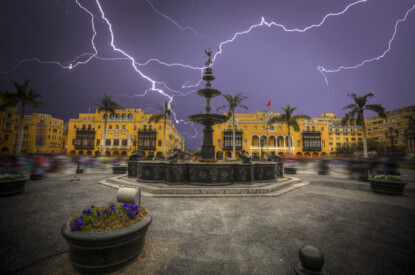Operator News
Peru – Russian slot hackers now targeting South America
By Phil - 20 March 2017
Russian slot hackers are believed to have turned their attention to slots in Peru in South America having already manipulated the maths used on slot machines in the US and Singapore to take millions in winnings.
The revelation was made by security consultant Rex Carlson and World Game Protection owner Willy Allison, who were speaking at the Luxur in Las Vegas at 17th annual North American Regulators Roundtable, organised by GLI.
They said that the Russian syndicate numbered between 40 and 70 individuals despite the FBI making its first arrests back in May 2014. Singapore authorities made more arrests in May 2016.
Mr. Carlson said has taken at least a decade for the scam to come to light it was so covert and difficult. He explained that with lot of computer resources available to them, the gang has managed to beat the RNG behind the slot machines.
Mr. Allison added that the gang used computer experts to devise algorithms to beat RNG if they aren’t robust enough.
Both men said that cryptographic-secured RNGs were needed to help prevent the scam.
It is believed that the Russian syndicate was set up following Russia’s ban on casinos in the summer of 2009 when 1000s and 1000s of slot machines were rendered redundant overnight as the new laws were brought in.
The syndicate, set up in St Petersburg, is believed to have studied slot machines made by four manufacturers and managed to unravel the secrets of the Random Number Generators on certain machines. Using mobile phones hidden in their top pockets, scouts would then collect video footage of slots in casinos that they were targeting and beam it back to St Petersburg where it was then studied and used to reverse engineer aspects of the machine’s RNG. Applications detail the RNGs were then downloaded onto phones which would vibrate when players should hit the slot button.
It is believed to have started in Lumiere Place Casino in St. Louis before moving on to casinos in Kansas City and in Temecula, California.
Surveillance footage from the Lumiere showed a man playing some slots ‘while furtively holding his iPhone close to the screen.’
In a report by wired, the casino stated: “The only odd thing about his behaviour during his streaks was the way he’d hover his finger above the Spin button for long stretches before finally jabbing it in haste; typical slots players don’t pause between spins like that.”
The outlay would be between $20 to $60 which over a two day period would yield winnings of $21,000.
The scam came to light in 2014 when four Russian nationals who had been indicted for conspiring to travel from Russia to casinos across the United States, including several local casinos, to cheat at particular slot games using electronic devices, were arrested.
According to the indictment, the charged defendants engaged in a conspiracy to cheat at least 10 casinos in Missouri, California, and Illinois through the use of electronic devices. The devices were used to predict the behaviour of a certain make and model of slot machine game known as the Aristocrat Mark VI Electronic Gaming Device. By communicating with a foreign server, the devices allowed the defendants to predict the behaviour of the Mark IV games and obtain winnings from the games that far exceeded what would be expected from fair play. The defendants made multiple trips from Russia to the United States in order to carry out their scheme, using the devices to cheat casinos in St. Louis, Missouri; Temecula, California; and East St. Louis, Illinois, among others.
This case was investigated by the Federal Bureau of Investigation with assistance from Homeland Security Investigations, Immigration and Customs Enforcement, the Missouri Highway Patrol, the Missouri Gaming Commission, the Illinois State Police, the Illinois Gaming Board, and the California Department of Justice, Bureau of Gambling Control. Assistant United States Attorney Richard E. Finneran is handling the case for the US Attorney’s Office.



